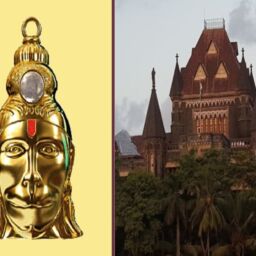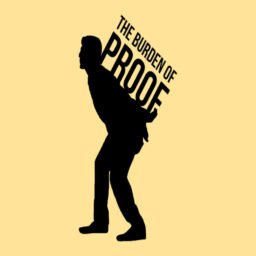INTRODUCTION
One of the most serious problems, which the entire world considers is “Drug Trafficking.” Besides, kidnapping, prostitution, murders, and many other crimes, drug trafficking became a profitable business.[1] Drug trafficking deals with the distribution of drugs and however, involves more and more individuals getting addicted to those drugs. To prevent the distribution and use of illegal drugs, most of the countries are working constantly to not let illegal drugs enter their countries. Different countries have different punishments. In simple terms, drug trafficking is nothing but the distribution, sale and production of drugs that are illegal.
A drug is a kind of substance or medicine, which gets mixed up easily with the consumer’s blood and excess usage of the same drug affects the human body functioning such as physical and mental health as they may get harmed badly. The biggest route for drug trafficking is captured by Afghanistan, the Indian Ocean, and Pakistan, as there are several consumer countries. Once, if addicted to the drug, it not only affects the individual’s life but also their family, dependents which may also include the unborn child. Those between 18 to 35 years of age group are considered to be the most drug addicts. The supply of the consumer’s demand is fulfilled accordingly as India is one of the biggest markets for drug consumers. The drug can be taken in various ways such as injecting, snorting, or smoking as it depends on the consumer and how effectively his or her brain gets influenced.
Goa, being one of the biggest hubs for rave parties where most of the locals, outsiders, and foreigners be a part.[2] Besides, the culture of Goa attracts people to at least visit for once, whereas a few visits for the sole purpose of enjoying, and a few visits in order to enjoy the parties, alcohol, drugs, clubs, etc.
TYPES OF DRUGS
Under International Control, the included drugs are cannabis, cocaine/coca, opiates, ecstasy, hallucinogens, heroin. Countries have also decided to control these drugs as they are a threat to health. Some of the effects of these drugs sound good as they last for a limited period. Many individuals become depressed and lonely afterwards and start feeling sick. Besides, people who use drugs have red eyes, sweat a lot, doesn’t care about their physical appearance, and seems to be confused.
LEGISLATIVE BODIES ENFORCING DRUG LAW IN INDIA
These days, drug abuse is getting momentum and at the same time, the youth are also getting addicted to these drugs as they are assuming that the usage of these drugs is a kind of trend whereas it is the biggest mistake made by them. So, in order to improve the physical and mental strength among the people, the Indian government took decisions so as to prevent drug trafficking, and also it helps in developing the Indian society. So, the following are the legislative bodies that govern drug abuse in Indian society:[3]
- Central Bureau of Narcotics (CBN)
- The Narcotic Control Bureau (NCB)
- Narcotic Control Division
- Other agencies like Border Security Force, Central Bureau of Investigation, Customs Commission, Directorate of Revenue Intelligence.
INDIAN LEGISLATIVE POLICIES RELATED TO DRUGS
The legislative policies that govern the drug-related issues are huge and many, and are also covered under the following three central acts:
- Drug and Cosmetics Act, 1940
- The Narcotics Drugs and Psychotropic Substances Act, 1985 (“The NDPS ACT, 1985”).
- Prevention of Illicit Traffic in Narcotic Drugs and Psychotropic Substances Act, 1988.
THE NDPS ACT, 1985
The NDPS Act provides any kind of lenience only at the time when the drugs are used for any medical usage or for any scientific research which will duly be approved by the concerned authorities. However, it doesn’t restrict its vigilance and punishments which are related to illicit trafficking and distribution of drugs through denial and criminalization of the production, possession, distribution, usage, importing, exporting, cultivation, and the consumption of psychotropic substances and narcotic drugs. According to Section 20 of the Act,[4] ‘any kind of distribution, transportation, import or export, cultivation of illicit drug is punishable.
- The punishment will be imprisonment for up to 6 months or a fine of Rs.10,000 or both, in case if the holding is of a small quantity.
- The punishment will either be imprisonment for up to 10 years or a fine of Rs.1 Lakh or both, in case if the holding is more than the small quantity but less than the commercial quantity.
- The punishment will be either imprisonment for up to 10 to 20 years or a fine of Rs.1 to 2 Lakhs or both in case if the holding is of commercial quantity.
This Act was amended three times i.e., in the years 1989, 2001, and 2004 and the punishment was made stronger than previously.
NDPS (AMENDMENT) ACT, 2014
Certain provisions were added within the Act in early 2014 for the third time. A few highlights were mentioned below:
- The division for different essential narcotic drugs was created where the central government can directly regulate them.
- Under Section 31A,[5] it was made optional for capital punishment of a subsequent offence which includes a specific number of drugs. Besides, under this section, the court has also made other alternatives for the imposition of imprisonment for a period of 30 years.
- Also, in the case of small quantity offences, the punishment has been increased from a maximum of 6 months to 1 year of imprisonment.
- In order to conduct the arrest and search permit holders for the affirmed NDPS violations, the ranks of the officers who were approved are being raised.
CONCLUSION
Today, along with other countries, India is also suffering from many health issues which are either related to mental or physical health and one of the reasons is the consumption of illegal drugs. Mainly, the youth are getting affected by consuming these illicit drugs. People might get attracted to the trend of these drugs but it affects them as well as their families and dependents. The government took many steps in order to control drug abuse issues. Though there are legal bodies that govern and punish, the usage of drugs is taking place in many parts of the nation. At the same time, the government also took steps like activating people by explaining to them the consequences of the consumption of these illegal drugs. Even if the government implements several acts or regulations in order to control illegal drugs, the people must think about themselves and about their families.
Author(s) Name: Jetti Vaishnavi (Student, Damodaram Sanjivayya National Law University, Visakhapatnam)
References:
[1] Nishika Prajapati, Drug Trafficking in India (Legal Service India, 7th July 2021) http://www.legalserviceindia.com/legal/article-2839-drug-trafficking-in-india.html.
[2] Yash Soni, Drug Trafficking in India: Legal Perspective (Latest Law, 7th July 2021) https://www.latestlaws.com/articles/drug-trafficking-in-india-legal-perspective-by-yash-soni/.
[3] Ibid.
[4] The Narcotic Drugs and Psychotropic Substances Act, 1985, § 20, No. 61, Acts of Parliament, 1985.
[5] The Narcotic Drugs and Psychotropic Substances (Amendments) Act, 2014, § 31A, No. 16, Acts of Parliament, 2014.
















